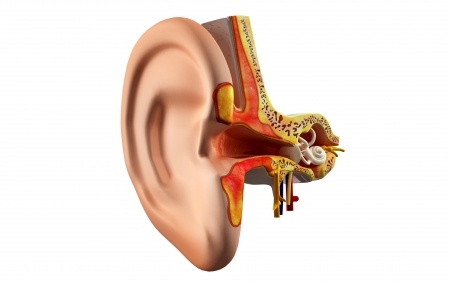Did you know that we function better if our right ear plays the leading role in our listening?
“Why is that?” you may ask. It is because the language center is on the left side of our brains. That is where language is processed. Since each side of the brain controls the opposite side of the body, we want meaningful sound to go through the right ear so it can proceed directly to the left side of the brain.
It’s almost time for one of my therapy groups. As they walk into the room, I greet them and tell them we’ll be playing a calling game. There’s a play phone on the table, in front of each seat. The students sit at the kidney-shaped table, and I pretend to call from my phone. They all reach for their phones, lift them to an ear and answer. With one exception, they put the phone to their left ear.
Now I am no scientist, but recent research shows that there is more of a link than previously thought between listening difficulties and learning disabilities and Attention Deficit Hyperactivity Disorder (ADHD).
The article below from Rafaele Joudry offers a solution to the dilemma.
Children With Learning Difficulties May Have Listening Problems
by Rafaele Joudry

Learning Difficulties Linked to Auditory Processing
Today it seems that more and more children have learning difficulties, which means they struggle to keep up where they should be progressing with natural ease. Teachers struggle to teach a class when several children with ADHD are making it impossible for anyone to concentrate.
For children experiencing the frustration caused by such common conditions as ADHD, Dyslexia, Autism or hearing loss, Sound Therapy is a non-invasive, drug free therapy that will help them develop and reach their potential.
For parents experiencing the stress and distress because of their child’s problems, the joy of finding a therapy that is both effective and drug free cannot be overestimated.
How does listening help learning?
Listening involves several steps.
1. The ear must be in good working order.
2. The child needs to be relaxed and interested and paying attention.
3. Their brain cells also need to be working in an organised way to understand what they are hearing.
Problems in any of these areas make learning in school very difficult. They may be called “auditory processing problems.” Good auditory processing means a person can learn easily and has a good foundation for reading, writing, spelling and remembering.
Learning difficulties and Auditory Processing
Much evidence points to the fact that learning difficulties are in some way linked to ear function. Therefore, a therapy which improves the ear’s performance is a direct and easy way to assist with learning. Sound Therapy is different from music therapy because it uses specially treated sound, intended to physically improve the way the ear works, as opposed to just using music for an emotional impact.
Successful listening and learning depends on good auditory processing. Auditory processing means the ability to translate the stream of vocal speech sounds into words and meaning, and then recreate those sounds as speech. Therefore, there is a great deal more than hearing required for successful use of language.
Re-training the Ear
Sound Therapy works by retraining the ear-activating and building brain pathways so the child’s ability to learn is dramatically enhanced. Connections between the two hemispheres of the brain are strengthened so that thinking and co-ordination improve in many areas. The child’s equilibrium, sense of self-control and self-esteem develop, so naturally, behaviour also improves.
The added stimulation benefits all children, and is especially necessary for those who are a little slower in their development.
Learn more about natural tinnitus treatments and download a free report “Evidence and Answers for Tinnitus Relief” from http://www.TriumphOverTinnitus.com
Rafaele Joudry BSW MSc (psych) is a tinnitus expert and the author of three books and 200 articles on sound therapy and tinnitus. She is the founder of Sound Therapy International, which provides free tinnitus support and advice for tinnitus patients via their Sound Therapy Help Lines 317-691-2369 (USA) or 1300-55-77-96 (Australia).
Their Sound Therapy website has been on-line since 2001 and their world renowned tinnitus treatments have helped many thousands of tinnitus sufferers obtain genuine, lasting relief from ringing in the ears.
Article Source: http://EzineArticles.com/?expert=Rafaele_Joudry
“Ear” Image credit: abhijith3747 / 123RF Stock Photo


…My mama was very deaf so I knew some bu not all of this….thanks for the education!
You are welcome, Caro. Thanks for stopping by.
There are so many children who have difficulty processing and interpreting sound, not because their hearing mechanism is faulty, but simply because the connection between ear and brain is interrupted in some way. I want as many parent as cross my path to know the importance of effective and efficient listening to academic and life success.
Help me spread the new, will you?